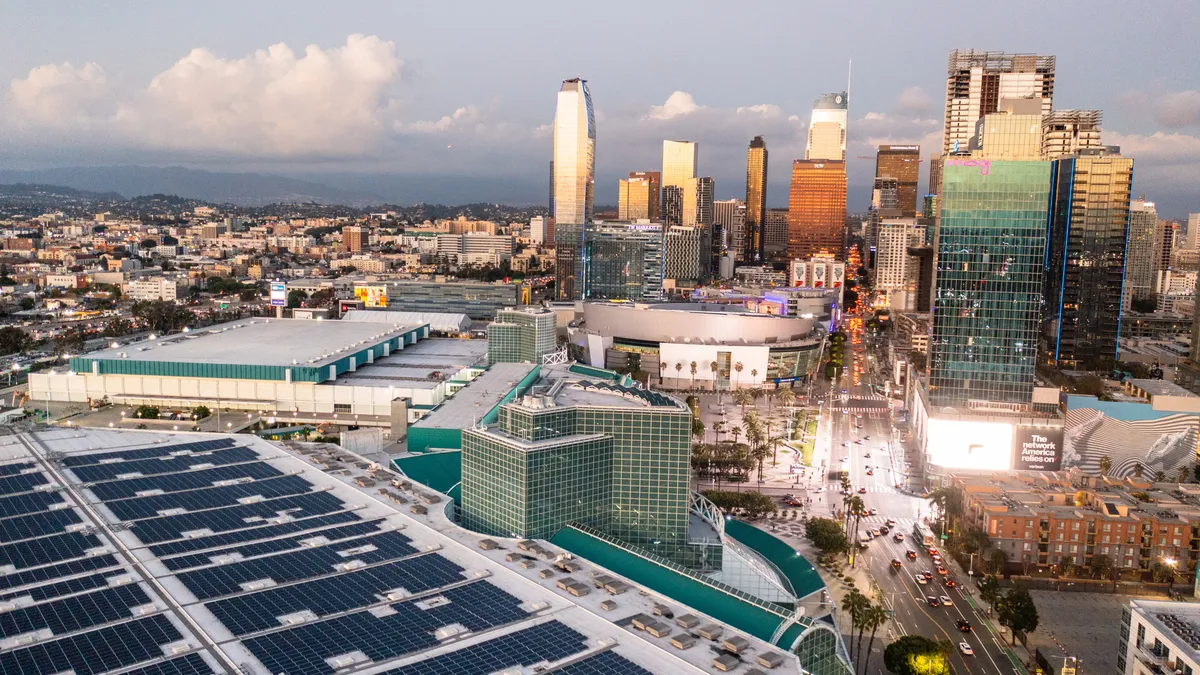Dive Brief:
- The Los Angeles City Council approved a motion to develop plans for speeding up the review process and encouraging the adoption of new technologies related to solar and battery installations.
- In a 13-0 vote last Wednesday, council members requested the Los Angeles Department of Water and Power to report back on existing procedures for reviewing and adopting these technologies in commercial and residential properties, with “options to streamline these processes and related matters,” the Office of the City Clerk said.
- The vote builds on Los Angeles’ LA 100 plan and follows the adoption of similar streamlined approval processes in other municipalities, as cities like New York have sought to streamline their approval processes for solar panel installations.
Dive Insight:
New York City recently streamlined the approval process for certain solar panel installations on landmarked buildings and energy storage technologies, with its city council approving the “City of Yes for Carbon Neutrality” initiative on Dec. 6. The initiative aims to reduce New York City’s carbon emissions 80% by 2050 by eliminating zoning impediments to rooftop solar, solar parking canopies, and onshore wind and energy storage systems.
Los Angeles’ approval of the motion to accelerate its green technology adoption review process is guided by the city’s LA 100 plan, which targets net-zero carbon electricity by 2035.
The LADWP joined forces with the National Renewable Energy Laboratory in 2017 to gauge the technical feasibility of achieving a 100% clean energy grid. The study pointed to likely growth in rooftop solar as well as annual consumption and peak electricity demand by 2045, with significant deployment of renewable and zero-carbon energy by 2035. This deployment is expected to account for a reduction of at least 76% in greenhouse gas emissions from power plant operations by then, compared to 2020 levels.
“In the years leading up to 2035, the LA 100 transition will spur innovation and the LADWP should facilitate the development and implementation of new technologies that encourage distributed generation of clean energy,” the motion reads. “Los Angeles must likewise ensure that new technologies that may assist the city in reaching its energy policy goals are responsibly implemented by both residential and commercial customers.”
Additionally, council members are interested in exploring the use of meter socket adaptors. While these adaptors could boost electrical resilience and remove the need for certain costly electrical service upgrades, they could pose “certain risks to consumers”, the motion reads. Although the motion does not specify these risks, it notes that the LADWP, which approves many such products on the city’s behalf, should reexamine its approval process and consider ways to make it quicker and more transparent.













